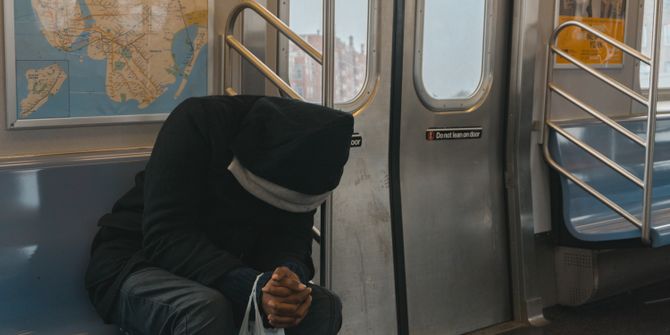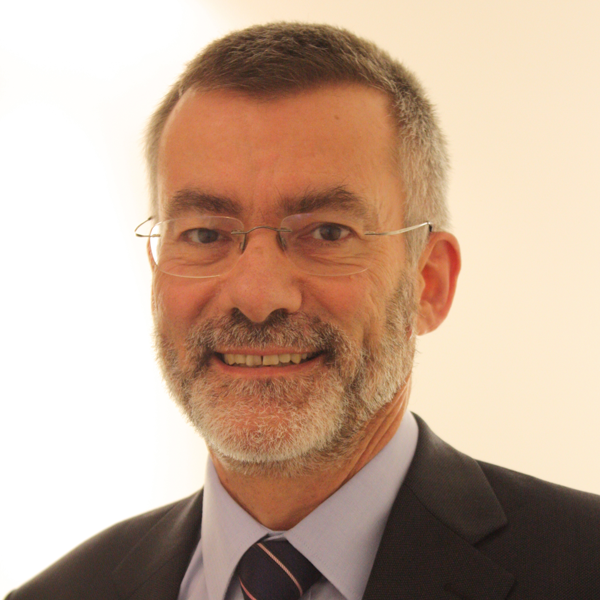Having dedicated his career to strengthening communities, David Robinson recounts the damage that isolation can wreak upon social groups. As shallow connections displace meaningful ones, our increasingly atomised society could trigger a loneliness epidemic – but things might be changing.

The older I get, the less certain I am. But of this I am sure: relationships matter. It is not only possible for one human being to make a real and lasting difference to another, it is often the only thing that ever does.
As a community worker, I have spent most of the last 40 years working with some of the UK’s most disadvantaged communities in east London.
My time in these communities has led me to believe that we are moving in the wrong direction – and so do many others. My previous work on Changing London showed that social connection, and the lack of it, was the top concern for our largest single group of Londoners. Higher than housing or health or crime although, as many pointed out, it is not unrelated to any of these other issues.
The research was small scale but the facts are clear: about one in five people, of all ages, say they are lonely. At least one in ten are severely isolated. This isn’t just about old people alone for days on end. It is also about support for the new parent, a warm network for the job seeker, integration for the recent arrival and a caring community for us all. Strong relationships keep us all mentally and physically healthy, they make us feel more confident and more capable. They keep our communities safe, help us to cope, enable us to flourish, and make us happy.
Connecting well is not the same as being ‘well-connected’. It is not about the size of our address books. It is about the quality of our relationships and, whilst we may now network and transact now more than ever, meaningful time together has been, and is being, systematically displaced by fast and shallow connections. We are becoming more atomised and automated, more comfortable with technology but less close to one another.
As the neoliberal economy has invaded every corner of our lives, aggressive self-interest has triumphed over mutual support. Our organisations, public and private, are bigger, more remote, less human. And everything is online. Slow connections and real relationships can be facilitated by a machine or an organisation but they can’t be with a machine or an organisation.
We have hollowed out the heart of our business with call centres, our high streets with cash points and self service checkouts, our neighbourhoods with design that strips out interaction and our public services with carers commissioned for seven minute visits, retendered every three months. Fake relationships are as ubiquitous in 2018, and just as insidious, as fake news.
The human race has been here before. The agrarian and industrial revolutions disrupted social patterns and called for new ways of behaving. Social change followed but it took a while. Now we are again in that catch-up phase.
I joined the Marshall Institute in October to reflect on the causes and consequences of these trends, to consider instead the possibility of places where ‘meaningful relationships are the central operating principle’ and to imagine the route maps for reaching them.
In my first week, I heard Institute Director Stephan Chambers quoting Howard Stevenson’s classic definition of social enterprise – ‘the pursuit of opportunity beyond the resources you control’ and I began a series of blogs setting out some ideas very deliberately involving ‘opportunities beyond my own resources’. I was determined to work collaboratively and in plain sight, involving others in unpicking the issues and designing a response. The reactions I’ve received are evidence that these ideas might have traction – and to give me hope that we’re reaching a turning point.
ABOUT THE AUTHOR

David Robinson is a Practitioner in Residence at the Marshall Institute. He has founded a number of organisations including Community Links, leading the Early Action Task Force; Shift, where he chairs the board; the Children’s Discovery Centre, and Changing London. He led the Prime Minister’s Council on Social Action for Gordon Brown and the London Advisory Board for what is now the Big Lottery Fund. David has been described by the Guardian as “the godfather of the community sector, equally admired on the left and right”.





